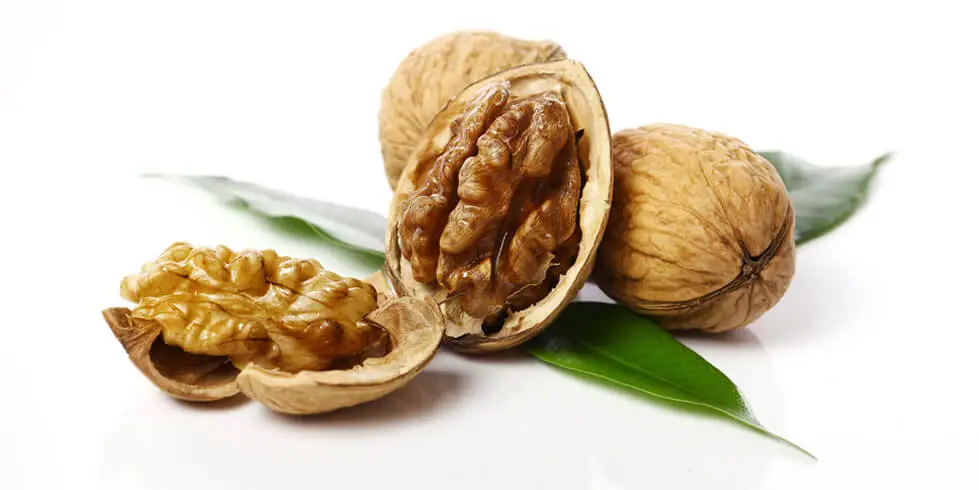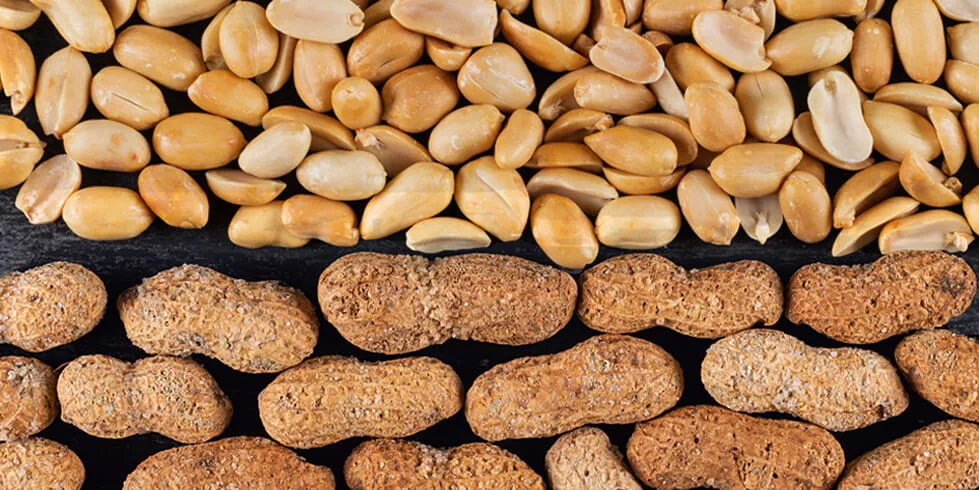Walnut is a staple part of our diet, and their health benefits have been known for a long time. Walnuts have always been known for their lipid profile, linked to a wide range of biological properties and effects that are good for your health.
Walnuts have a lot of bioactive compounds, such as vitamin E and polyphenols, in addition to essential fatty acids. Walnuts are one of the best sources of polyphenols in common foods and drinks, so people pay attention to how they affect health.
Walnuts have antioxidant and anti-inflammatory properties, and several studies have looked at how they might help prevent and treat diseases like cancer, heart disease, and neurological disorders.
Health Benefits of Walnuts
Walnuts have a lot of polyunsaturated omega-6 and omega-3 fatty acids, which are essential to a healthy diet. Walnuts have many health benefits, but some of the most important ones are that they lower cholesterol, raise the ratio of high-density lipoprotein cholesterol to total cholesterol, reduce inflammation, and improve the function of the arteries. Walnuts are full of nutrients that are important for living a healthy life.
Reduce the Risk of Developing Cancers
Studies show that walnuts can significantly lower total and LDL cholesterol. In an Iranian study, 52 participants were divided into two groups. The first group ate walnuts daily, while the second did not. The walnut group had 17.1 percent lower triglyceride levels and 9 percent higher HDL cholesterol levels after eight weeks.
Improves Heart Health
According to studies that have already been done, eating nuts lowers the risk of heart disease. One study found that a diet low in calories and high in walnuts helped lower LDL cholesterol and raised systolic blood pressure more than a low-calorie diet alone.
The studies have shown that eating tree nuts, like walnuts, is linked to a lower risk of heart disease, a smaller waist circumference, higher HDL (good) cholesterol, and a lower chance of being overweight.
Most health experts say that eating walnuts as part of a heart-healthy diet is a good idea because they are high in polyunsaturated fats, which are suitable for the heart. Walnuts also have omega-3 alpha-linolenic acid from plants (ALA). DHA and EPA, which are long-chain omega-3 fatty acids, can be made from ALA.
Research has shown that diets high in omega-3 fatty acids may lower the risk of heart disease and even help people with type 2 diabetes, especially those with high triglyceride levels.
Aids Healthy Weight Loss and Weight Management
Eating nuts has generally been linked with better weight control and less body fat. Several studies, some of which were paid for in part by the California Walnut Commission, have shown that walnuts can help you get to and stay at a healthy weight.
Studies done on their own have also shown that eating nuts are linked to a lower body mass index and a lower risk of metabolic syndrome and obesity. Still, the authors of one research review said that more studies are needed to learn more and figure out which nuts are good for your health.
Walnuts are an excellent way to lose weight because they contain protein and fiber. Protein and fiber can help you feel full. Fiber-rich foods can also help give the body a steady stream of glucose, which keeps blood sugar from going up and down too much. Studies have shown that people who are overweight or obese can lose weight and keep it off by eating foods with fiber.
Adding healthy fats like nuts to your diet is about getting the right amount. Even though nuts are low in carbs, a small serving can have a lot of calories. Even healthy foods, when overeaten, can cause weight gain.
Improves Brain Health
A study published in the Journal of Nutrition suggests that walnut consumption may benefit brain health as we age.
Walnuts contain the highest total phenolic and flavonoid contents of commonly consumed nuts and have the highest antioxidant content.11 Study authors concluded that eating a walnut-rich diet (along with other antioxidant foods) is one of the easiest ways to reduce the risk for age-related cognitive decline.
Control Diabetes
In a one-year program, Australian researchers looked at 50 overweight adult diabetics who were given a low-fat diet plan. However, 30 grams of walnuts were eaten every day by half of the test subjects. In the first three months, the people in the walnut group had much lower insulin levels when fasting.
Improve Thinking Ability
Walnut makes thinking quick. In a crossover study, 64 college students were given either walnuts or another food. After eight weeks, walnut eaters were 11.2 percent better at guessing words. Walnuts and other foods high in antioxidants can also help people stay healthy longer and think better as they age.
Allergy
Some people may be allergic to walnuts and experience itching, swelling, hives, and difficulty breathing. It is a dangerous reaction that requires immediate medical attention.
Interaction with medications
Walnuts have a lot of polyphenols and tannins, which can make it hard for some medicines to be absorbed. If you are taking prescription drugs, you should talk to your doctor before consuming large amounts of walnuts.
Gastrointestinal symptoms
Walnuts have a lot of fiber and fat, which can bother some people’s stomachs, especially if they eat a lot. Symptoms may include bloating, gas, and diarrhea.
Weight gain
Although walnuts are a healthy food, they are also high in calories. You should limit your consumption of walnuts and other high-calorie foods if you are trying to lose weight.
Blood thinning
Walnuts contain high levels of omega-3 fatty acids, which can have a blood-thinning effect. If you are taking blood-thinning medications or have a bleeding disorder, you must talk to your doctor before consuming large amounts of walnuts.
conclusion
walnuts are a nutritious and healthy food, they can cause adverse effects and raise individual concerns for some people. It is essential to be aware of these potential issues and to talk to your doctor
Overview
The Persian walnut (Juglans regia L.), which is in the family Juglandaceae, is one of the most important nut crops. Walnuts come from Central Asia and Eastern Europe, which includes Iran, Turkey, Iraq, Afghanistan, southern Russia, and northern India.
Technically, a walnut is not a nut because it is the seed of a drupe or drupaceous nut. Walnuts are one of the most critical temperate fruits grown around the world. They are grown on an area of 607.81 thousand hectares and produce 892.760 MT per year.
China grows the most walnuts in the country, and India grows the seventh most walnuts. The Indian states of Jammu and Kashmir, Uttarakhand, Himachal Pradesh, and Arunachal Pradesh are the main places where walnuts are grown.
Walnut kernels have a lot of protein, fat, vitamins, minerals, and polyphenols. It makes them an essential part of a healthy diet. They also have a lot of flavonoids, sterols, pectic substances, phenolic acids, and polyphenols that are similar to them.
Nutrition Facts of Walnut
The USDA provides the following nutrient data for one ounce (30g), or around seven whole English walnuts or 14 halves.
Calories: 185
Water: 4%
Protein: 4.3 grams
Carbs: 3.9 grams
Sugar: 0.7 grams
Fiber: 1.9 grams
Fat: 18.5 grams
Fats
Fat makes up about 65% of the weight of a walnut. It makes them high-calorie and high-energy foods. Even though walnuts are high in fat and calories, studies show that eating them instead of other foods does not raise the risks of becoming overweight.
Oil is mainly made up of triacylglycerols. Walnut oil has mostly oleic (18:1), linoleic (18:2), and linolenic (18:3) fatty acids. Alpha-linolenic acid (ALA), a beneficial omega-3 fat, is also present in relatively high amounts in them. It makes up between 8 and 14 percent of all food’s fat.
Walnuts are the only nuts that contain a significant amount of ALA. The heart benefits from ALA. It also helps lessen inflammation and change the way blood fats are made.
ALA is also a building block for the long-chain omega-3 fatty acids EPA and DHA, which have many health benefits.
Protein
Walnuts have a lot of proteins (protein is made of individual amino acids, some of which are essential in the diet). The protein content in walnuts is between 13.6 and 18.1 grams per 100 grams of dry matter.
Amino acid
Walnuts have a low amount of the amino acid lysine and a lot of the amino acid arginine. Walnuts have a lot of the amino acid arginine, which can be turned into nitric oxide, a potent vasodilator that can stop platelets from sticking together and clumping together found that the ratio of lysine to arginine in 12 different cultivars grown in New Zealand was 0.24, which is much lower than in other common proteins.
Researchers have found that a low ratio of lysine to arginine in a protein is a good thing for preventing atherosclerosis in lab animals.
Dietary fiber
Several things about walnuts may help protect against coronary heart disease. One of the eight possible good things about nuts is that they contain fiber. The total amount of dietary fiber in 12 types of New Zealand walnuts ranged from 3.1 to 5.2 g per 100 g of dry matter.
Sterols
Since the early 1950s, it has been known that phytosterols can help lower cholesterol. Plant sterols pass through the intestinal tract almost without being absorbed.
However, they also seem to stop cholesterol from being absorbed, lowering cholesterol levels in the blood. Human and animal studies have shown that a moderate amount of dietary plant sterols lowers total serum cholesterol and LDL-cholesterol levels.
There are enough sterols in walnuts to affect human metabolism positively, but this depends on how many walnuts are eaten regularly.
Minerals and Vitamins
Walnuts are a good source of several vitamins and minerals, such as Vitamin E Compared to other nuts, walnuts have a lot of gamma-tocopherol, a type of vitamin E that is not discovered in other nuts.
Vitamin E
Vitamin E is a powerful antioxidant that keeps fats in lipid membranes from turning rancid. Lavedrine et al. (1999) showed that walnuts grown in France and the USA have about the same amount of vitamin E.
They found that the essential tocopherol in walnut oil was gamma-tocopherol. Between 290 and 435 mg of tocopherol per gram of Oil can be found in New Zealand walnuts. Walnuts were ranked second in a study that counted the antioxidants in 1113 popular foods consumed in the U.S.
B6 vitamin
This vitamin may strengthen the immune system and the nervous system. A vitamin B6 deficiency may cause anemia.
Folic acid
Folic acid is called folate or vitamin B9, and it has a lot of essential roles in the body. A lack of folic acid during pregnancy could lead to birth- defects.
Copper
Copper is a mineral that helps keep your heart healthy. It also helps bones, nerves, and the immune system work well.
Phosphorus
Phosphorus is a mineral that makes up about 1% of our bodies. It is primarily discovered in our bones. It serves many purposes in the body.
Manganese
Manganese is a trace mineral that begins in nuts, whole grains, fruits, and vegetables in the highest amounts.
Other plant Compounds
There are many different bioactive plant compounds in walnuts. They have many antioxidants, most of which are in the thin, brown skin. Some of the many plant chemicals that can begin in walnuts are long.
Ellagic acid
This antioxidant is found in amounts in walnuts, along with related compounds like ellagitannins. Ellagic acid may make heart disease less likely and help stop cancers from growing.
Catechin
Catechin is an antioxidant flavonoid that may be good for your health in many ways. It may also be good for your heart.
Melatonin
Melatonin is a neurohormone that synchronizes the body’s biological clock. Moreover, it contains a powerful antioxidant that may help prevent heart disease.
The Author’s Message
I hope you enjoyed my blog about the Health Benefits of Walnut and Nutrition Facts. I’m not saying that walnut is the perfect food for everyone, but there are many health benefits.
I encourage you to try walnut to see if it helps your health. If you’re uncertain about what to do, I would love to hear from you through this blog post.
Thank you for reading. I’m always excited when my blog posts can provide helpful information on a topic like this



